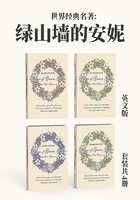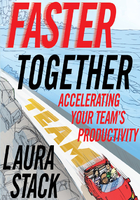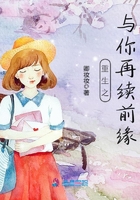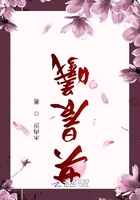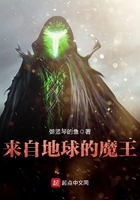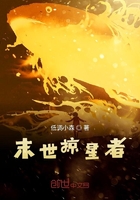In humbler houses, story-telling and songs, sung to the music of the harp by each guest in turn, formed the principal amusement of the drinking-bout. But in great halls, the music of the harp-which, under the poetic name of "glee-wood," was the national instrument-of fiddles played with bow or finger, of trumpets, pipes, flutes, and horns, filled the hot and smoky air with a clamour of sweet sounds. The solo of the ancient sc?p or maker,④ who struck his five-stringed harp in praise of old Teutonic heroes, was exchanged in later days for the performances of the glee-man, who played on many instruments, danced with violent and often comical gestures, tossed knives and balls into the air, and did other wondrous feats of jugglery.
Meantime the music and the mead did their work upon maddened brains: the revelry grew louder; riddles, which had flown thick around the board at first, gave place to banter, taunts, and fierce boasts of prowess; angry eyes gleamed defiance; and it was well if in the morning the household slaves had not to wash blood-stains from the pavement of the hall, or in the still night, when the drunken brawlers lay stupid on the floor, to drag a dead man from the red plash in which he lay.
From the reek and riot of the hall the ladies escaped to the bower, where they reigned supreme. There, in the earlier part of the day, they had arrayed themselves in their bright- coloured robes, plying tweezers and crisping-irons on their yellow hair, and often heightening the blush that Nature gave them with a shade of rouge. There, too, they used to scold and beat their female slaves, with a violence which said more for their strength of lung and muscle than for the gentleness of their womanhood.
When their needles were fairly set agoing upon those pieces of delicate embroidery, known and prized over all Europe as"English work," some gentlemen dropped in, perhaps harp in hand, to chat and play for their amusement, or to engage in games of hazard and skill, which seem to have resembled modern dice and chess. When in later days supper came into fashion, the round table of the bower was usually spread for Evening-food , as this meal was called. And not long afterwards, those bags of straw, from which they sprang at sunrise, received for another night their human burden, worn out with the labours and the revels of the day.
WORDS
arranged, laid out. arrayed, decked. carousers, revellers. central, most important. chieftain, lord. completed, finished. defiance, challenge. demolition, consumption. gestures, actions. heightening, intensifying.
honoured, distinguished. lounging, loitering. officious, over-obliging. principal, chief. resembled, been like. revelry, festivity. suggestively, significantly. unceasing, incessant. utensils, appliances. variegated, checkered.
NOTES
① Tesser?, the blocks or cubes used in making mosaic pavements. From its diminutive,tessella , comes the word tessel-latd , used in describing such pavements.
② The upper board, that at which the host and his guests sat; for the servants and retainers sat in the same room, but at a lower table at the other end of the hall.
③ Wine.-The use of wine among the Old English was limited to the highest class. It was either imported from the Continent or made of home-grown grapes, which since Roman days had ripened in the lower basins of Severn and Thames. Many monasteries, alive to the delights of grape juice, contrived to have a vineyard of their own.
④ Scop or maker.-The Old English word for "poet" is sceopa -that is, shaper ; in later times maker (Scot. mocker) was used in the same sense. Both words point to creation, or original invention, as the essential part of the poet"s work. It may be noticed, also, that the word "poet" comes from a Greek verb signifying to make ; while the French "troubadour"and "trouvere," and the Italian "trovatore," are all derived from a word meaning to make , invent, find out.
QUESTIONS
What was the great event of the Old English day? When did it take place? Of what did the table consist? By whom was the board laid? Of what did the meal consist? What food did the domestics receive? With what did the solid part of the banquet end? What then began? What did they drink? What was peculiar about their drinking-glasses? Of what is this suggestive? By what performances was the banquet accompanied? In what did it often end? Where had the ladies meantime gone? How did they spend the evening?

